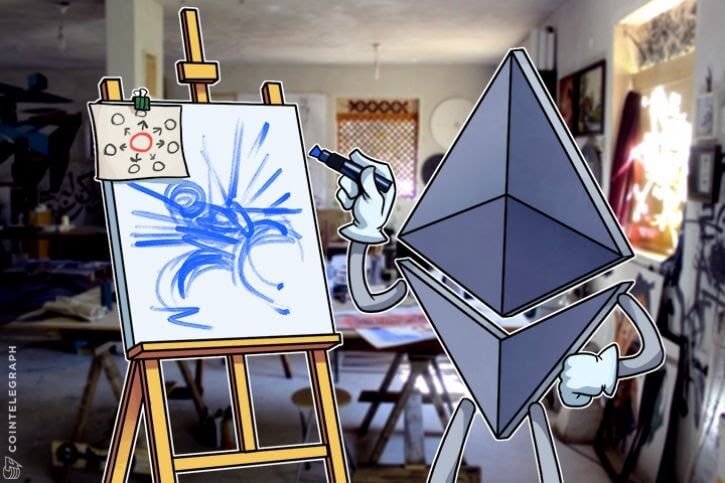What is Ethereum?Ethereum is a decentralised system which implies that it is not governed by any single governing body. An absolute majority of online systems, corporations and businesses are based on a centralised governance system. A centralised approach means control by a single agency, but it also means a single point of failure, which makes it highly vulnerable to hacker attacks and even power outages for apps and online servers using this system. In addition, the majority of social networks and other web servers require users to include at least a certain amount of personal information that is then stored on their servers. From there, the business itself, its rogue staff or hackers, can easily steal it. Being a decentralised system, Ethereum is completely autonomous and is not regulated at all by anyone. It does not have a single point of failure, since it is run from the machines of thousands of volunteers around the world, which means it can never go offline. It is a full network, with its own web browser, language coding and payment system. Most notably, on Ethereum's Blockchain, it helps users to build decentralised apps. Such systems may be either completely new concepts or decentralised reworks of already existing concepts. This effectively takes out the middleman and all the costs associated with a third party's involvement. For instance, the only gain that comes from 'liking' users and 'sharing' the posts of their favourite artist on Facebook is created from an advertisement put on their page and goes directly to Facebook. Both the artists and the public will earn prizes for constructive communication and encouragement in an Ethereum version of such a social network. Similarly, you will not get just any artefact for your donation to the business in a decentralised version of Kickstarter, you will get a portion of the potential income of the company. Finally, Ethereum-based apps can eliminate all kinds of third-party payments for interesting services of any kind. Ethereum uses a peer-to-peer strategy. Each single interaction exists between the users who engage in it and is only assisted by them, with no governing authority involved. These consensus rules are determined by 'smart contracts, as well as various other aspects of the network.' These are structured to execute transactions and other complex activities within the network automatically with parties you do not necessarily trust. In the Ethereum the conditions are to be met by all parties are pre-programmed into the contract. A transaction or some other particular activity is then activated by the completion of these terms. Many people assume that smart contracts are the future and will ultimately replace all other contractual arrangements, as the execution of smart contracts offers protection that is superior to conventional contract law, decreases contracting-related transaction costs, and creates trust between two components. Who created Ethereum?Vitalik Buterin outlined his idea in a white paper in late 2013, which he sent out to a few of his colleagues, who sent it out again in turn. As a result, to explore the idea, about 30 people reached out to Vitalik. He was expecting negative feedback and people pointing out the concept's critical errors, but it never happened. Is Ethereum a cryptocurrency?Ethereum is a web platform by design that seeks to function as both a decentralised Internet and a decentralised app store. A system such as this requires a currency to pay for the requisite computing resources to run an application or programme. It not only serves as a digital currency, however, but also functions as 'steam' for the network's decentralised apps. The transaction fees are determined dynamically based on the amount of 'gas' needed by an operation. Is Bitcoin like Ethereum?When it comes to the blockchain aspect, Ethereum and Bitcoin may be somehow similar, but the fact is that they are two entirely separate projects with completely different objectives. 
Even when the cryptocurrency element is contrasted, the two ventures seem to be drastically different. Bitcoin, for example, has a hard limit of 21 million Bitcoins that can never be produced, whereas Ether's future supply can be virtually infinite. Another big difference is that efficient Bitcoin mining these days requires large quantities of computing power and energy and is only feasible if industrial-scale mining farms are used. On the other hand, the Ethereum proof-of-work algorithm supports people's decentralised mining. Although a full Touring code offers nearly unlimited possibilities for Ethereum users, its complexity also implies possible security complications. How Ethereum PerformsAs stated earlier, Ethereum is built on the protocol of Bitcoin and its Blockchain architecture, but is tweaked so that it is possible to support applications outside money systems. The only link between the two Blockchains is that they store their respective networks' entire transaction histories, but Blockchain from Ethereum does a lot more than that. Essentially, a transaction-based state machine can be represented as the Ethereum Blockchain. The computer transforms into another state when transactions are executed. Each Ethereum state is made up of millions of transactions. Such transactions are clustered to form 'blocks,' with each and every block chained together with their previous blocks. But it has to be checked before the transaction can be applied to the ledger, which passes through a process called mining. The more powerful their machine is, the easier the puzzle can be solved. What can Ethereum be used for?First and foremost, Ethereum enables developers to create decentralised applications and deploy them. In addition, it is possible to decentralise every centralised service using the Ethereum platform. The Ethereum platform's ability for creating apps is not constrained by anything other than the imagination of the developers. 
There are several platforms these days that charge commission fees for merely offering an escrow service and a forum for trading products and services to customers. On the other hand, Ethereum's Blockchain will enable consumers to trace the source of the product they purchase, whereas smart contracts can be enforced without any intermediary to ensure secure and quick trading for both parties. Blockchain technology itself has the ability to revolutionise web-based applications as well as long-established contractual practises in industries. For example, the U.S. insurance industry has more than $7 billion in inclined life insurance money, which can be fairly and transparently redistributed using Blockchain. In addition, customers can simply apply their insurance claim electronically with the introduction of smart contracts and obtain an immediate automatic payment, given that their claim met all the requirements required. The Ethereum Blockchain is fundamentally able to bring its core values of trust, accountability, protection and effectiveness into any service, organisation or industry. Without a single leader, Ethereum can also be used to establish Decentralized Autonomous Organizations (DAOs), functioning entirely transparently and independently of any interference. DAOs are managed by computer code and a set written on the Blockchain of smart contracts. DAOs are owned by individuals who have purchased tokens. Instead, tokens are donations that include voting rights for individuals. A consensus and a revision of an underlying code will be the only possible way to do so. This, though, is entirely contradictory to the very nature of the Blockchain, since it is meant to be an unchanging and permanent ledger. The 'DAO' was targeted and more than 3.6 million Ether tokens were stolen from it, which is a name for a specific DAO launched on April 30, 2016. The loss of a large chunk of funding from the DAO was not the only consequence of the attack, as it effectively eroded the trust of users in the entire Ethereum network, with the value of Ether dropping from over $20 to under $13. What apps on Ethereum have been developed?Ethereum has the ability also for people without any technological experience to open up the world of decentralised applications Most significant, smart contracts can be written, managed and implemented by users. Alternatively, the MetaMask extension for Google Chrome and Firefox can be used to access the Ethereum network.
Next TopicWhat is Hashcat
|
 For Videos Join Our Youtube Channel: Join Now
For Videos Join Our Youtube Channel: Join Now
Feedback
- Send your Feedback to [email protected]
Help Others, Please Share










